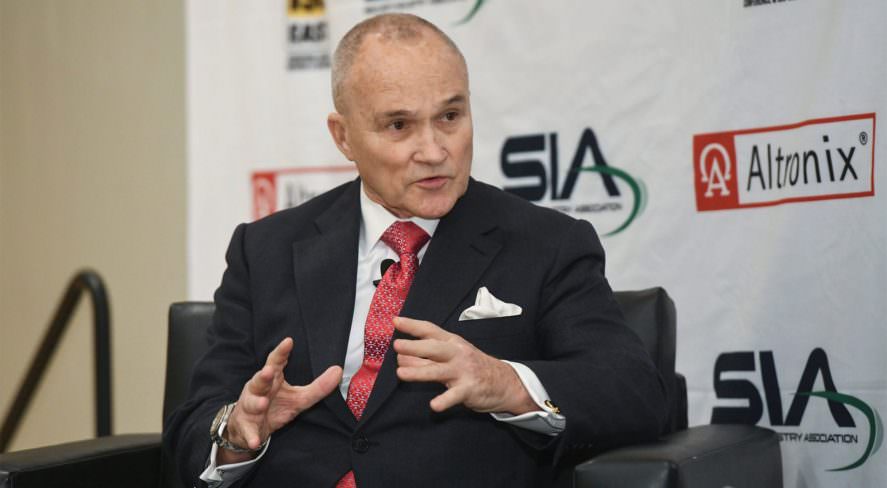Former NYPD Commissioner Ray Kelly Reflects on Public Safety Tech Trends

Police departments across the United States will expand their use of drones in the coming years, predicted Ray Kelly, former commissioner of the New York Police Department, during a keynote address at ISC East on Wednesday.
Kelly commented on trends in public safety during ISC East at the Javits Center in New York City, hailing small drones as a “poor man’s helicopter.”
As US police departments strive to cut expenses, they will turn to deploying drones to fulfill more functions, Kelly said. For example, using drones for wide area video surveillance during large events can be easier on municipal budgets than trying to use helicopters or other means.
As NYPD commissioner, Kelly instituted a domain awareness system, which has been credited with improving management of video surveillance systems throughout the city as well as automating license plate identification and identifying suspects. A little over 10 years ago, Kelly also instituted a program to share information with security directors. As a result, retail businesses, theaters and other organizations exchange video and other information with the police department to the benefit of both sides, Kelly said.
Security in New York City generally benefits from strong access control measures employed by private security throughout individual buildings in the city, Kelly said. A robust private security community running effective access control measures helps defeat theft and other crimes.
Reflecting on New York City’s reaction to the 9/11 attacks, Kelly admitted the strike against the World Trade Center “took us totally by surprise.” Afterward, the NYPD was guided by a rubric of “Three Cs” — counterterrorism, crime prevention and community relations. To build up its counterterrorism capacity, the department started the first counterterrorism unit within a US municipal police department after 9/11.
“We did not have the internal capacity to do that right away. So, we borrowed people from outside,” Kelly said.
From his observations as a police officer for more than 40 years, Kelly added his belief that community relations are better than ever. He expressed appreciation for strong reaction to police misconduct captured on body cameras or car surveillance systems, but he stressed that he did not believe such incidents were reflective of community relations overall, particularly in New York City.
“Communication is key,” Kelly said of community relations, “and you have to work at it every day.”
He said the NYPD relationship with its communities are much better than some critics may think.
“You want the police department that best reflects the community that it serves,” Kelly said.
